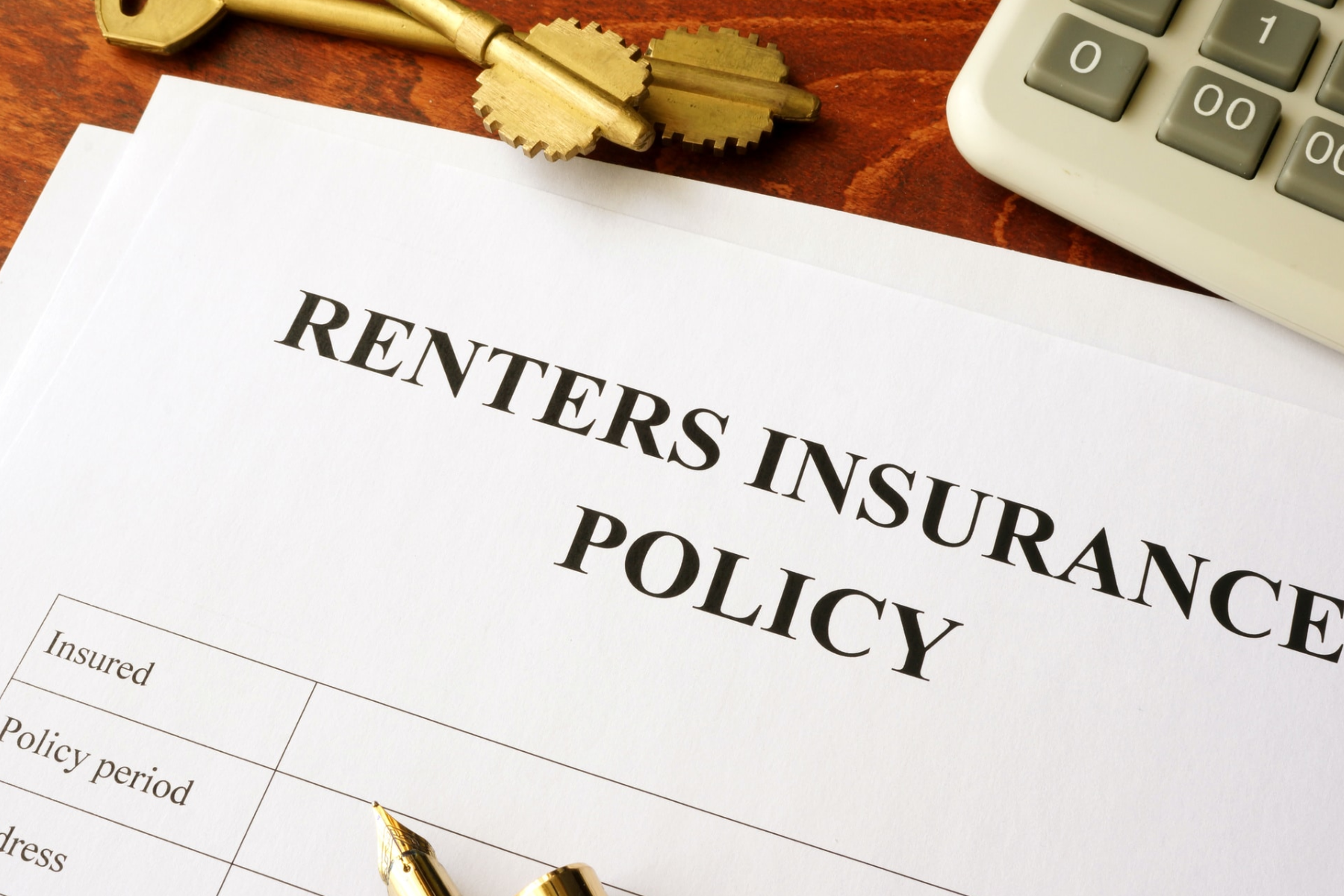Can My Landlord Make A Claim On My Renters Insurance
Wondering, "can my landlord make a claim on my renters insurance?" Get expert insights in this comprehensive guide. Learn your rights, responsibilities, and how to handle such situations.
Author:Gordon DickersonReviewer:Habiba AshtonOct 05, 20238.2K Shares211.9K Views

In the realm of renting, tenants often wonder about their rights and responsibilities. One common query that arises is, "Can my landlord make a claim on my renters' insurance?"
The goal of this article is to help you understand this topic better. It will provide information about your rights and how to handle similar situations.
Renting a property comes with its own set of rules and regulations. Understanding your renter's insurance and its relationship with your landlord is crucial. Let's delve into this topic step by step to clarify any doubts you may have.
What Is Renters Insurance?
Renters insurance, which is often referred to as renter insurance, is a form of financial protection that is developed specifically for those who rent their houses or apartments.
Renters can have peace of mind thanks to this insurance policy, which protects their personal items as well as their legal obligation in the event of an accident and covers a wide range of potential scenarios.
Key Components Of Renters Insurance
- Personal Property Coverage- The renter's insurance primarily covers personal belongings, including furniture, electronics, clothing, and valuable items. In the event of theft, fire, vandalism, or other covered perils, renters can receive compensation to replace or repair their possessions.
- Liability Protection- Renters insurance includes liability coverage, which protects policyholders from legal and financial consequences if they are found responsible for injuries to others or property damage. For example, if a visitor slips and falls in your rented space, liability coverage can help cover their medical expenses.
- Additional Living Expenses- If your rented property becomes temporarily uninhabitable due to a covered event, renters insurance may cover the costs of alternative accommodations, such as a hotel or temporary rental.
- Medical Payments- This aspect of renters insurance can cover minor medical expenses for guests who are injured in your rented space, regardless of who is at fault.
Common Misconceptions
- "I Don't Have Much Valuable Property"- Even if you don't own high-value items, the cost of replacing everyday belongings like clothing and electronics can add up. Renters insurance provides protection for all your possessions, regardless of their individual value.
- "I'm Covered by My Landlord's Insurance"- Your landlord's insurance typically covers the building or structure itself, not your personal belongings or liability. Relying on your landlord's policy can leave you vulnerable to financial losses.
- "Renters Insurance Is Expensive"- In most cases, the cost of renters insurance is reasonable, and plans can be adapted to meet the financial constraints and requirements of the renter. The value it delivers in terms of the protection it affords is tremendous.
The Role Of Renters Insurance
According to Nationwide Mutual Insurance Company, renters insurance protects your personal belongings in a leased apartment, condo, or home against unexpected events such as theft, fire, or sewage backup damage, and will reimburse you for lost or damaged possessions.
Additionally, it offers liability coverage, which can protect you from legal expenses if someone gets injured on your rental property.
Can My Landlord Require Renters Insurance?
There is no question that landlords have the legal authority to demand that tenants carry renter's insurance. This is a legitimate requirement given that it helps protect not only you but also the property that the landlord owns.
When tenants get renters insurance, it reduces the likelihood that the landlord will be held liable for any accidents or damages that are caused by the tenant.
However, it is not mandatory for a landlord to require tenants to get renters insurance according to Travelers Insurance.
Can My Landlord Really Make A Claim On My Renters Insurance?
Let's move on to the most important question: is it possible for your landlord to file a claim against your renter's insurance? In most cases, the answer is no.
The purpose of renter's insurance is to protect tenants like you, the renter, against personal liability as well as loss of property.
In most cases, it does not cover the property owned by the landlord.
However, there is always the possibility of an exception. In the event that you, as the renter, negligently cause damage to the rental property, your landlord may have the legal right to file a claim against the renter's insurance policy that you maintain.
It is absolutely necessary to carefully look over your policy and be familiar with the terms and conditions.
Instances Allowing Your Landlord To Make A Claim
- Tenant Negligence- If you, as the tenant, are found to be negligent and your actions result in damage to the rental property, your landlord may have grounds to make a claim on your renters' insurance. For instance, if you accidentally cause a kitchen fire due to careless cooking, and it damages the property, your landlord might seek compensation through your insurance.
- Lease Agreement- Many lease agreements explicitly state that tenants are responsible for any damage they cause to the property. If your lease includes such a clause and you violate it, your landlord could potentially make a claim on your renters' insurance to cover the repair costs.
- Criminal Activities- If illegal activities take place in your rented space, such as drug manufacturing or other criminal actions that result in property damage, your landlord may have a legitimate reason to involve your renters' insurance in covering the damages.
- Unauthorized Subletting- Renting out your rented space without your landlord's consent, also known as subletting, can lead to lease violations. If your subtenant causes damage, your landlord might pursue a claim on your renters' insurance to recover repair expenses.
- Pets- If your lease agreement permits pets, you might still be held responsible for any damage caused by your animals. For instance, if your dog damages the property, such as chewing on doors or walls, your landlord could use your renters' insurance to cover repairs.
- Water Damage- In some cases, water damage can occur due to tenant negligence, like failing to report a leak promptly. If such negligence leads to extensive damage, your landlord might involve your renters' insurance to mitigate their losses.
- Guest-Related Damage- If a guest staying in your rental unit causes damage, you, as the tenant, are typically responsible. This includes scenarios where your guest accidentally breaks something or engages in disruptive behavior that results in property damage.
- Failing to Report Maintenance Issues- If you neglect to report maintenance issues that ultimately cause significant damage to the property, your landlord may contend that your inaction contributed to the problem. This could potentially lead to a claim on your renters' insurance.
Handling A Claim From Your Landlord
If your landlord does have a valid claim, it's essential to handle the situation responsibly. Here are the steps to follow:
- Notify Your Insurance Company - As quickly as possible, report the claim to the insurance company that covers your renters' policy. Give them all the information and documentation they require at this time.
- Cooperate With Your Landlord- Maintain an open line of communication with your landlord throughout the entire process. This includes supplying any information or papers that are required in order for them to process the claim.
- Review Your Policy - Take a close look at your renter's insurance policy. Understand what it covers and the extent of your liability. This will help you navigate the situation more effectively.
- Seek Legal Advice- In the event that the circumstance becomes difficult or disputed, it is recommended that you obtain legal counsel. An attorney who concentrates their practice on landlord-tenant conflicts can be of great assistance in providing direction.
Is It Legal For A Landlord To Make A Claim On Their Tenant's Renters Insurance Without Consent?
There are frequently questions regarding rights, obligations, and boundaries that arise as a result of the legal relationships that exist between landlords and renters.
The subject of whether or not a tenant's landlord can make a claim on the renter's insurance policy of the tenant without the renter's permission is one that tenants may consider asking themselves.
The Landlord-Tenant Relationship
In most cases, a written lease or rental agreement serves as the legal framework for the landlord-tenant relationship. These contracts, which are legally enforceable, lay forth the terms and restrictions that a renter must abide by in order to rent a home.
They detail the obligations that are placed on both parties, including the payment of rent, the upkeep of the property, and compliance with any applicable local regulations.
Legal Basis For Landlords Making Claims On Renters Insurance
- Lease Agreement Terms- The legality of a landlord making a claim on a tenant's renters insurance without consent often hinges on the terms of the lease agreement. Some lease agreements may include clauses that explicitly permit landlords to access renter's insurance coverage in specific situations. For example, the lease may state that the tenant is responsible for any damages they cause to the property and that the landlord can use the tenant's renters insurance to cover repair costs.
- Negligence or Violation of Lease Terms- In cases where a tenant's negligence or violation of lease terms leads to damage to the rental property, landlords may argue that they have the legal basis to make a claim on the tenant's renters insurance. For instance, if a tenant accidentally starts a fire through careless cooking, and this negligence results in property damage, the landlord may assert that the tenant is liable for the damage, justifying a claim on the renters' insurance.
- Local and State Laws- The legal basis for landlords making claims on renters insurance can also be influenced by local and state laws. Some jurisdictions may have specific regulations that govern the landlord-tenant relationship and whether landlords can make claims on renters insurance without tenant consent.
Consent And Communication
Despite the fact that lease agreements and other legal considerations can assist in establishing whether a landlord can make a claim on a tenant's renters insurance policy, it is crucial for both the landlord and the tenant to prioritize open communication and consent.
This is the case even though lease agreements can help determine whether a landlord can make a claim.
In the vast majority of instances, it is in the best interest of both the landlord and the tenant to discuss any possible conflicts and work toward reaching a consensual arrangement. This is because doing so protects both parties' interests.
Handling A Claim Without Consent
If a landlord intends to make a claim on a tenant's renters insurance without their consent, they should follow specific steps to ensure that the process is lawful and respectful of the tenant's rights:
- Review the Lease Agreement- The landlord should thoroughly review the lease agreement to confirm that it allows for such claims.
- Document the Damage- It is essential for the landlord to document the extent of the damage and gather any evidence that supports their claim.
- Notify the Tenant- The tenant should be promptly informed about the claim and provided with details of the situation.
- Cooperate with the Tenant- Both parties should work together to facilitate the claim process, including providing necessary documents and information to the renters' insurance company.
Frequently Asked Questions
Can My Landlord Force Me To Get Renters Insurance?
No, your landlord cannot force you to get renters insurance, but they can make it a requirement for renting their property.
Is Renters Insurance Expensive?
Renters insurance is generally affordable, with premiums that vary based on factors such as location, coverage amount, and deductible.
What If I Don't Have Renters Insurance?
If you don't have renters insurance and your lease requires it, you may face eviction or legal consequences.
Can My Landlord Increase My Rent If I Have Renters Insurance?
Landlords cannot increase your rent solely because you have renters insurance. Rent hikes must comply with local laws and regulations.
Is Renters Insurance Worth It?
Yes, renters insurance is worth it as it provides valuable protection for your personal belongings and liability coverage.
Can My Landlord Make A Claim If I Accidentally Damage The Property?
Your landlord can make a claim on your renter's insurance if you negligently cause damage to the property.
Conclusion
Renters insurance is a valuable asset that protects you as a tenant. While your landlord typically cannot make a claim on your renter's insurance for property damage, it's essential to understand your policy's terms and be prepared to cooperate if a valid claim arises.
By doing so, you can ensure a smooth resolution of any issues that may arise during your tenancy.
Jump to
What Is Renters Insurance?
The Role Of Renters Insurance
Can My Landlord Require Renters Insurance?
Can My Landlord Really Make A Claim On My Renters Insurance?
Handling A Claim From Your Landlord
Is It Legal For A Landlord To Make A Claim On Their Tenant's Renters Insurance Without Consent?
Frequently Asked Questions
Conclusion

Gordon Dickerson
Author

Habiba Ashton
Reviewer
Latest Articles
Popular Articles


